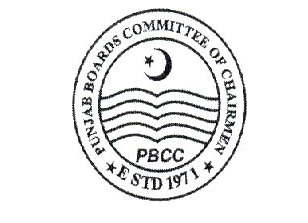PBCC Matric & Inter Exams Paper Pattern Changes

Punjab Boards Committee of Chairmen has recently made significant changes to the paper pattern for the 9th, 10th, 1st-year, and 2nd-year exams. These changes aim to incorporate more analytical and conceptual questions, accounting for 25% of the total paper. The decision was taken during a meeting held on June 15th, 2023, and a notification has been issued to inform all relevant stakeholders. The students can get latest updates of PBCC Matric & Inter Exams Paper Pattern Changes.
New Paper Pattern Implementation for SSC & HSSC Exams:
The PBCC, during its meeting on June 15th, 2023, made decisions to improve the current education and assessment system in Punjab. One of the key decisions taken was the adoption of the syndicate marking system for the SSC and HSSC exams, starting from the 2nd Annual 2023 Examinations. This system will be implemented by all Boards of Intermediate and Secondary Education BISES in Punjab.
Incorporation of Analytical/Conceptual Questions:
As part of the paper pattern changes, it has been decided that the analytical/conceptual portion of question papers will constitute 25% of all subject papers in the exams to be conducted in the 1st Annual 2024 for both SSC & HSSC. To facilitate this transition, all BISES will organize meetings with paper setters. After thorough deliberation, ten model papers for each subject will be proposed urgently. These model papers will then be shared with class-level teachers of SSC and HSSC to ensure they and their students are well-prepared for the revised paper pattern in the upcoming exams.
Importance of Command in Blooms Taxonomy:
Furthermore, it was emphasized during the committees review that no paper setter should be appointed without having a strong command of Blooms Taxonomy. This ensures that the question papers are designed to evaluate students higher-order thinking skills and encourage critical analysis and problem-solving abilities.
The PBCCs decision to modify the paper pattern for matric and intermediate exams reflects a commitment to improve the education and assessment system in Punjab. The incorporation of analytical and conceptual questions will enable students to demonstrate their deeper understanding of the subjects. The adoption of the syndicate marking system and the requirement for paper setters to possess command over Blooms Taxonomy further enhance the quality and effectiveness of the examination process. These changes will have a positive impact on the overall learning and evaluation experience for students in Punjab.
















